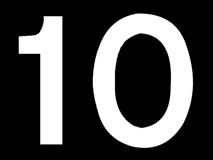10 reasons why your dental practice will soon be using Electronic Health Records (EHRs)

The dental industry is quickly embracing integration of dental Electronic Health Records (EHRs) in practice workflows. Fortunately, in terms of where this is all going, we have history on our side and lessons learned based on the EHR boom over the past few years in the medical industry (which I have experienced firsthand through my education and consulting work). With dramatic changes in healthcare and technology in general, your practice will be looking at "next generation" dental EHR features and functionality to improve patient care and stay competitive. Some of the main drivers that will require sophisticated dental EHRs include:
1. Growing importance of the oral-systemic connection
An increased number of correlations between oral health and medical conditions are being discovered and, especially with an increased medically compromised patient population, oral health providers will be required to track medical information on their patients. Along with that, the dental industry will join the medical industry in using EHRs to exchange patient information.
2. Demand for accountable care
The paradigm is changing in healthcare in which patient care success is determined not by procedures done, but by outcomes of patients being treated. A growing number of insurers are looking to accountable care organizations for this data and reimbursement models are being looked at based on provider accountability. This is projected to affect dentistry as well as medicine.
3. Liability and risk mitigation
Having patient records at your fingertips has been advantageous for the practice for both risk mitigation and audits. In cases of litigation, with EHRs there is little gray area when it comes to organized documentation. In fact (at least in the medical world), there has been talk of malpractice insurance companies giving preferred rates to those who have EHRs.
4. Introduction of state mandates
Both Minnesota and Massachusetts legislatures have made an attempt at mandating that dentists use EHRs in their practices. At this point, there are still some gray areas regarding the legislation, but appears that the writing is on the wall. Given how both the federal and state governments feel about adoption of EHRs, there is good chance you will see more states legislating mandates for dentists.
5. Expansion of HIPAA
There were sweeping changes to the HIPAA regulations last fall, and electronic technologies were addressed more than ever. Requirements such as providing electronic copies of their record to patients and a mandate to use secure electronic communications helped lead the way. HIPAA, as it relates to EHRs and dental software, will only expand as time goes on.
6. Explosion of mobile technology
With mobile technology growth and the ability to manage cases outside of the office, there is more expectation than ever that patient data will be available outside of the office. Dental EHRs are already addressing mobile platforms and will continue to offer timely case management.
7. Patient perception
Whether right or wrong, I have heard of surveys in which there was perception by dental patients that a practice with newer technologies might practice better dentistry. Certainly this has been the case with medical EHRs where patient care is perceived as being better with the use of EHR technology. In this increasingly competitive world, this perception becomes important when choosing a provider.
8. Popularity of patient Web portals
The ability to communicate, retrieve treatment and patient education information, and perform other functions over the Internet with a patient’s providers has become standard protocol in the medical world and will differentiate dental practices. The integration of patient Web portals with EHR capability is looming and a number of vendors are working on this. This is also exploding as we are becoming more and more of a cloud-based industry.
9. Electronic Prescribing becoming standard
Some states are looking at e-prescribing mandates following the lead of Medicare and Medicaid. Along with e-prescribing come features such as drug-drug and drug-allergy checking with information found in the patient’s EHR. There is far less liability regarding prescription writing when it is generated electronically via the EHR.
10. Introduction and use of diagnostic coding
Many in the dental profession don’t think diagnostic codes will be incorporated into the workflow, but many others “in the know” understand that we are on the horizon of using diagnosis codes in our daily encounters. With the introduction of hundreds, if not thousands of oral health specific codes over time, EHRs will become an essential tool in managing their utilization. Payers will more frequently demand tie-in between diagnoses and procedures, which EHRs can provide. And with the growth of patient outcome analytics, EHRs will be even more necessary.